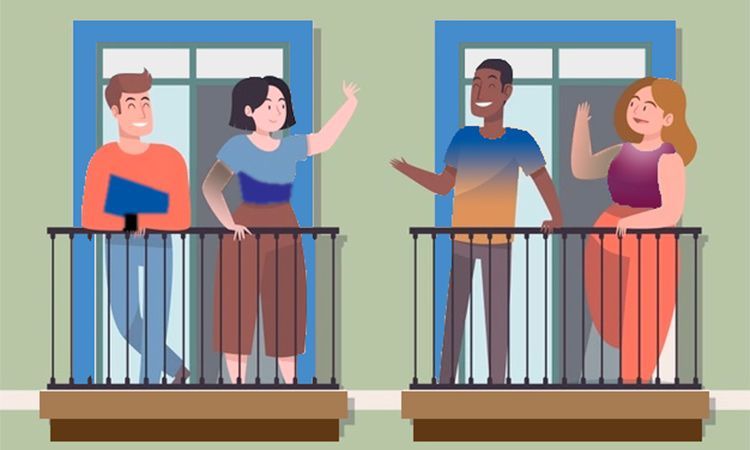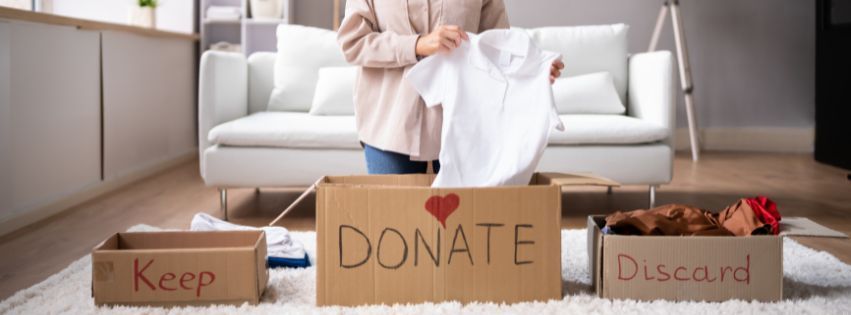BLOG

We all know our ND winters can be brutal and have us questioning why we live in a place where the air feels like forced acupuncture. That’s why we want our residents to have a warm and cozy place to retreat to! For optimal comfort during our chilly torture season we have some helpful hints, tips and suggestions to help you through! Insulation is invaluable If the thermostat is set to 76 and it feels 60, it could very well be frigid air coming in from the windows. Our Prolific properties are no spring chickens and may have spots where Jack Frost creeps in. To keep him outside where he belongs, we recommend purchasing an insulation window kit ($10 at Walmart) to cover and seal the windows in the unit. Weather stripping under the doors can also be a game changer for keeping your rooms heated. There is a wide range of super cute and super effective choices on Amazon or at Walmart as well. Team Up to Warm Up! While freezing pipes can be a common annual event, there are ways we can ‘team up’ to help our plumbing and heating systems work properly throughout the “ber” months. Firstly, frozen pipes are the most common reason water pressure decreases and apartments feeling cold even with thermostats turned on high. The pipes can also burst, causing flooding and electrical hazards. To keep these things from happening, we highly recommend keeping the thermostat set to 65-75 degrees during winter. Be sure to keep working batteries in the thermostat as well. If your unit has a digital thermostat but the display is not showing, please replace the batteries. Keeping furniture off and away from the heat vents is also very important to keep the heat working properly. Remember the wise Boyscouts of America Motto: ALWAYS BE PREPARED While prevention is key, the risk still exists of losing heat or the heat not keeping up with our cold state. That is why it is crucial to have enough blankets and proper winter clothing on hand. Heat blankets, pads and portable heaters are all very helpful midwest winter necessities. If you do not own a portable heater and are in need of one due to having no heat, please call 701-566-8445 and we can have our agent deliver one to you. Warm drinks can also go a long way to keep you warm. Apple cider, hot chocolate, coffee, tea etc. are all delicious options to have on hand and keep you toasty! “We’re cold too!” - sincerely, all dakota insects Please do not fret when you see a mini pet! (We’re kidding.) All kinds of creepy crawlies may find their way into your apartment during the season. Pests are attracted to warmth as much as they are garbage. It is necessary to keep your areas clean of anything sticky or damp. Hang up towels to dry, take out the trash often and wipe your counters. Be sure to report any leaks right away. These habits can go a long way in keeping any unwanted guests from invading your cozy home. Call for help There are many things we can suggest to help fight the freezing temps, but should you need our help please have this information ready before reaching out for maintenance: Test the vents to see if they are hot or cold to the touch Please take and text photos of the setting and reading of the thermostat If it feels “too warm,” confirm nothing else could be heating up the unit - such as cooking or hot shower steam Check the hallways to check the building temperature These answers can help us decide how to proceed in offering the appropriate maintenance. We hope we can provide all of our Prolific residents with a safe and heated home this season!

Annoying things our parents nagged us about when growing up ‘Under Their Roof:’ “Close the refrigerator door!” “Shut the window, I have the heat on! Are we heating up the whole block?!” “Turn off the lights when you leave the room!” As an adult and having to foot the bills yourself, those annoying nagging sayings make a whole lot more sense now! Working day in and day out just to give all your hard earned money away is just a part of life, right? However, how nice is it to have the peace of mind knowing you did your best to have some of your money remaining after the bills are paid for savings or for fun? That’s why it’s good to know all those creative and uncommon ways to save on things like electricity! Once you know how to cut down on those darn ‘gas usage’ charges, that bill can reduce dramatically and save you money! While it’s not uncommon and more about common sense, turning off the lights when you’re not in a room can save you significantly when you make a conscious habit of it. Also, while replacing a perfectly working bulb would seem needless, some may want to consider it. Just about everyone in this century has now heard of LED lights. What’s great about these bulbs is they use at least 75% less energy AND last 25 times longer than your average $1.88 generic brand light bulb. What’s more, GE offers all kinds of motion sensored and smart home efficient and energy saving lights to help out all those tech-advanced people. They claim to be easy and user-friendly, but that doesn’t stop me from being a little skeptical. I’m sure my son could figure it out for me, though! While not everyone has time or the skill to cook at home, there are still plenty of folks who probably do use that big metal appliance in the kitchen. A helpful tip they should consider, according to the California Energy Commission, is that if you turn off the burner early, the stove will most likely release enough heat to finish whatever you’re cooking and save some electricity! Also, every time you open that oven door to check on that pizza, or lasagne, or pie (I’m officially drooling now) the internal temperature can drop 25 degrees! As a result, the oven uses more electricity to bring the temperature back up. There’s a window on that big chunk of burning metal for a reason, Bud. *Wink, wink* Another helpful cooking tip is to consider utilizing a smaller cooking appliance to use less energy. Microwave ovens, air fryers and toaster ovens are all great options to use substantially less electricity than the oven. It’s no secret that many of us enjoy television, streaming services and our electronic devices to keep us entertained. Even though medical providers will advise against it, oftentimes there is some sort of white-noise coming from somewhere in our homes. However, if we did take the medical advice and turn off those gadgets during periods when they are legitimately not being used (ie: while cooking, showering, doing chores, trying to fall asleep etc.) that would save 3% or more of your average monthly energy use. It may not seem like a lot, but it adds up quickly and every little bit of saving counts! One scary truth we tend to think is ridiculous and even annoying: energy vampires exist. Does that mean I want you to invest in some garlic? No. Not that kind of vampire. I’m talking about the devices and appliances you leave plugged in daily that are secretly consuming energy even when they are not being used. Ok, so we could call them energy leaches too, I suppose? But that’s not the term I found on Google. You get the idea though - it’s best to unplug the toaster and phone charger if you’re not using it! See? I said it would be annoying and ridiculous. But it’s supposed to help, so I’m offering the option to you. All of these things could easily put a little extra paper in your pocket or rainy day fund. I think we all could agree, living smarter and not working harder is an easier route to improve your lifestyle and achieve the personal growth we all strive for. With Prolific, this is always our goal: Putting Our Residents First and Ensuring Their Greatest Lives Can Be Lived.

Prolific Property Management prides itself on our motto, “Residents Come First”, but what does this really mean to us? Our team puts a lot of thought and effort into what we would have enjoyed throughout our own past rental experiences. What are things we didn’t like? What could have made us reside in the rental community longer? In what ways would we have felt more valued and heard as residents? Over the past year, our internal Prolific team has grown. This allows us to give even more time and attention to our residents. We are so excited to introduce our amazing residents to the Prolific Loyalty Program ! The Loyalty Program is designed for residents who have been residing at a Prolific community for two or more years. What does this mean for those residents you ask? Loyalty Perks! These can include the consideration of unit upgrades, rental credit opportunities, automated contest entry, surprise gifts and so much more! When Prolific was created, the founder’s main goal was to provide an experience for residents that seemingly wasn’t available or offered by other local rental companies. They took a good look around and thought ‘Wow, we can do this better.’ From that moment the Prolific team was built and has been working towards ways to make residents feel comfortable in their rental communities and feel valued rather than feeling like a number. In our humble opinion, the ability to give back to our residents is the most resounding way to show our appreciation. We want to actualize the saying, “the proof is in the pudding.” “How will I know if I’m a Loyalty Member?” Anyone that has been a resident with us for two years or longer will automatically be a Loyalty Member! If you’re approaching two years of Living Prolific at renewal time, we’ll send you a text or letter letting you know you are now a member of the program! Once you’re a Loyalty Member, you’ll be automatically added to all contest drawings, receive additional prizes throughout the year, be eligible for waived transfer fees (when applicable) and so much more! We’re so excited to be able to start offering this program! We look forward to the new possibilities and ways we can give back to our residents. Thank you, as always, for choosing to Live Prolific 🙂

It’s not any big secret that things change over time. Gone are the days when you’re welcomed to the building by a knock on the door with introductions and fresh baked goods. Nowadays you’re lucky to even see a neighbor, let alone know the name of someone in the apartment next to yours! Due to the necessity of being healthy and safe these days, people just aren’t overly friendly and eager to meet each other anymore. An essential thing to remind ourselves is the reality of knowing our surroundings, and our neighbors , is being safe! Not only that, but politeness, kindness and overall respect can go a long way in our small North Dakota communities. When folks live in a shared space, like an apartment building, sounds and voices can resonate. Sometimes even amplify. Anyone recall that Friends episode with the neighbor character downstairs who would pound on the ceiling with his broom because he could hear them just “walking?” I don’t believe any of our properties are that sound sensitive! However, it would be a thoughtful thing to keep in mind; the noise level in your apartment. I’m not saying to stop blending your morning smoothie or telling your kids “keep it down!” every few minutes. Some suggestions might be to not blast your favorite country song in the evenings when other neighbors may be trying to get their infant to sleep, so perhaps send the kids outside for some fresh air. Another generous choice apartment neighbors can make is when it comes to their visitors. Apartments are a great space for many things but they aren’t necessarily what most would categorize as a “large gathering space.” The off-street parking is typically saved for residents, and the nearby parking is usually limited. Not to mention the above notes about noise levels. Your neighbors will most likely notice the change in sounds and number of voices. A large gathering of visitors, even if attempting to be quiet, can still cause a stir and disruption in an otherwise calm building. To save your neighbors any cause for conflict, it might be better to host your crowd at a more private setting. All of our Prolific properties are pet friendly. Sharing a space with pets comes with its own parts of consideration. It would help out greatly and is courteous to be conscious of pet smells, outdoor messes, and once again – noise level. One idea for neighbors to have some understanding and support for pet owning residents is to get to know and have a relationship with the building’s furry friends. When you think of sharing public spaces in apartment communities, typical common spaces like laundry rooms, entryways and hallways come to mind. Keeping these areas clean and paying attention to picking up that wrapper you just dropped is the extra special behavior that adds to a comfortable living environment for all. Perhaps it’s remembering to set a timer for the laundry so it doesn’t take up time a neighbor was hoping to use it when you are done. While you may not be inviting the new neighbor to your book club right off the bat like they may have in the 40s, you can still be sure to stomp off the snow in the entryway or hold the door when you see someone carrying in a load of groceries to be a good neighbor in the 21st century. Good old manners still means something to the average renter! We love hearing when our Prolific family has good experiences while living on our properties. Please feel encouraged to share any more “good neighborly” suggestions or stories you may have that represent our Prolific values by emailing us at info@liveprolific.com . Let’s hop into Spring considering the Golden Rule and perhaps making new friends in addition!

We’ve all heard of ‘New Year’s Resolutions,’ which sounds outdated and almost intimidating. However, the concept of looking ahead and thinking about, “what do I see myself doing this year?” is actually a healthy and positive thing to consider wrapping your head around, in addition to wrapping all those gifts right now. Many people have already started planning travel vacations or bought tickets to shows they want to see in the upcoming year. Having things or places to look forward to doing and seeing can have a residual effect on our mental well-being and emotional stability. A recent study from North Carolina State University finds that people who manage to balance living in the moment with planning for the future are best able to weather daily stress without succumbing to negative moods. So let’s look ahead! It’s never too late to learn a new skill! Maybe you’ve always wanted to learn another language? If so, there are an abundance of tech friendly apps you can use on your phone, tablet or computer that make learning a new language pretty easy nowadays. Many users say they are able to learn basic conversations in as little as 3 weeks! Quilting is also becoming a very popular hobby these days. Then again, we do live in a state that is snow covered about half of the year. Maybe you want to learn to ski or snowboard? Or what about something as simple as writing? A journal or blog can be a highly rewarding way to stay sharp and release tension or creative juices. If you aren’t interested in learning something new this year and would rather see something new, then you’re lucky our world is a never ending story full of adventures and mysteries. Whether it be overseas or just a little further south to warmer temperatures, there is so much to see and do! I googled ‘unique vacations,’ and what came up had me dream-packing my suitcase! Have you ever heard of The Queen Mary, once a world-class ocean liner, and now a luxurious floating hotel based in Long Beach, California?! I mean, the word ‘luxury’ is an understatement! If you’re not into that high class style, then I’d suggest checking out the Shady Dell in Bisbee, Arizona. Established in 1927 to provide trailer and camping spaces to travelers along the famous Highway 80, the spot has since become an institution, boasting quirky and vintage trailers and camper vans for guests to stay in. The Shady Dell promises an unusual and unforgettable stay. Of course you could always set your sights really high and go all out to somewhere like Salta, Argentina. I read that the region is famed for its spectacular scenery and richly colored landscapes–think red rock valleys, multi-colored and monochromatic hills and terra-cotta peaks magically set against stark blue skies. The diversity of this area makes it a haven for trekking, horseback riding, rafting, driving 4x4s and a plethora of other adventure activities. Maybe, just maybe, it’s not in your budget or limited time availability to learn or see and do. Planning ahead can just be scheduling upcoming graduations, birthdays and those necessary follow up appointments on your calendar. Knowing there are events coming up to plan for is what that healthy outlook is about. It provides a sense of comfort and minimizes stress. A self-help author, Robert Epstein, found that 25% of our happiness hinges on how well we’re able to manage stress. If it’s as uncomplicated as planning ahead to ensure a quarter of happiness in the upcoming year - then I’ll ask again: What do you want to do in 2023?






